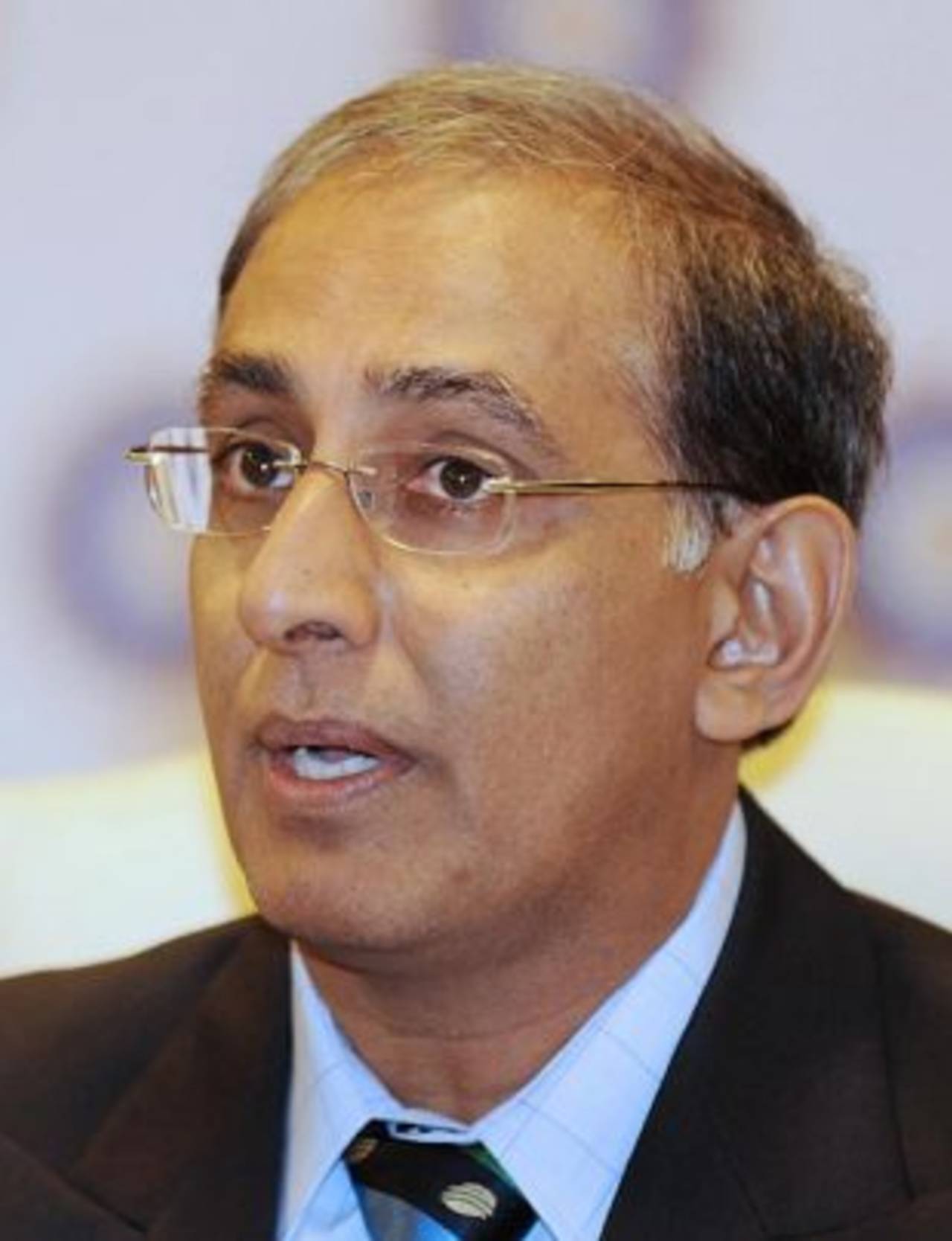Facing criticism about an inadequate anti-corruption protocol, the ICC has denied any laxity in the work of its Anti-Corruption and Security Unit (ACSU) and pointed out that the body lacks the powers available to conventional law enforcement agencies.
Three days after what could be the sport's biggest scandal came to light, ICC CEO Haroon Lorgat told Cricinfo he was not worried about the fact that it was broken following a tabloid sting operation.
"The ACSU's working is not that of a policing agency or a newspaper," Lorgat said. "They have no power to arrest or seize, or carry out a sting operation."
Criticism of the ACSU began shortly after the arrest of Mazhar Majeed on Saturday, on charges of 'conspiracy to defraud bookmakers'. Michael Vaughan, the former England captain, was quoted as saying, "We've had an anti-corruption unit for how long? Why does it take an English newspaper to bring this out?"
The ICC spent $640,000, excluding staff costs, on the ACSU last year. That's less than 1% of the ICC's profit of $84.7 million.
Defending the ACSU, Lorgat said it had played its own part in assisting the Majeed case, to which the names of at least three Pakistani cricketers have been linked. "There is a lot of evidence we have given to the police in this investigation so we are not worried about how it is working at all", he said.
The ACSU was set up in 2001, in response to the Hansie Cronje match-fixing scandal, as a means of establishing and publicising very specific anti-corruption and security measures for players, support staff and administrators.
The game has changed since then, with the advent of Twenty20 cricket, and so has technology but Lorgat indicated the ACSU didn't need to change to stay in sync. "In the context of what is going on, I think its work is going fine," he said.
The onset of the World Cup, less than six months away, was not, Lorgat said, a special cause for concern for the ICC. "Never mind the World Cup, there is never a good time of the year for something like this to happen. This kind of bad news is not acceptable and cricket can do without it at any point of time."
The ACSU's functioning is limited primarily to ICC events and begins with seminars about the anti-corruption code, which takes place in the under-19 World Cup, the women's world cup and the three main events in the men's game: the World Cup, the Champions Trophy and the World T20. The seminar is followed by a technical briefing for support staff to discuss anti-corruption issues among others. The players are advised on how to deal with approaches by unknown individuals - they must report it immediately to the manager, much in the manner of Shane Watson and Brad Haddin. Every dressing room has a sign on the wall with the numbers of the ACSU's hotline. The approach room or corridor leading to the dressing room is watched over by CCTV cameras, whose footage is removed by the ICC's security police after each day's play and stored for inspection and reviews when needed.
The mugshots of those allowed access to the dressing room - team and support staff - are posted outside the doors and only the manager is allowed to use a mobile phone inside the room; all the cellphones and 'communication devices' during the match are banned. While wi-fi access is password restricted, only the manager is given the password to supply to the team's data analyst. At an ICC event the only other person allowed to enter a dressing room is the event manager - "even the CEO doesn't have access to the dressing room," an ICC official said.
National boards are supposed to follow identical anti-corruption rules in much the same manner and for the most part seem to be doing so. On the evening before a big international game, the security team inspects the venue. According to a regular ground-operations expert in India, the daily visitor pass to the dressing room has a stamp that fades to prevent it from being re-cycled the next day. In newer stadia - Nagpur, for example - no one else is allowed access even into the separate corridors that take the player from bus to changing room.
Yet the rules stop at the ground at the end of the game. The rest, says the ICC staffer, rests on national boards and the player's own sense of self. "We can't tap phones or shadow players because that is an invasion of privacy. We can't control the hotel and we can't control the individual beyond what he does on the field." An ICC security man said that the shift from 'fans' approaching players to several claiming to be 'agents' and 'managers' for the players had made the ICC's vigilance all the more complicated. The fan can be hustled away, the legitimate business partner of a cricketer just won't budge.
The ICC's anti corruption code has been updated and amended as of October 6, 2009, but the official says there is a chance that the ICC's chief executives meeting in Cape Town on September 14-15 will discuss the issue of allowances made for the age of cricketers found guilty of colluding with bookies.
Sharda Ugra is senior editor at Cricinfo; Osman Samiuddin is the Pakistan Editor
